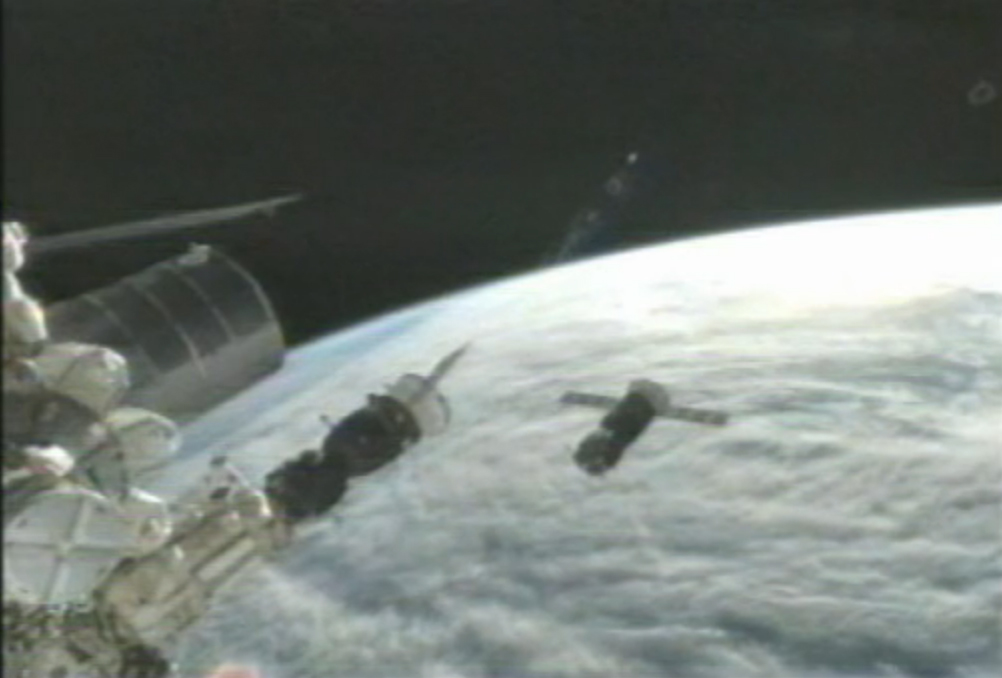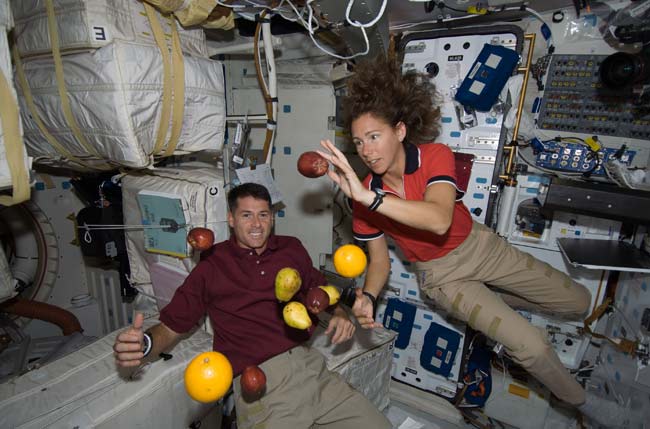Russia Testing New Space Station Docking Gear Tonight

Russia will test a new spacecraft docking system at the International Space Station tonight (July 23), one that will be used on future robotic and manned missions to the orbiting outpost.
The test is being performed by the unmanned Russian cargo ship Progress 47, which undocked from the space station on Sunday (July 22) to prepare for the docking demonstration. The Progress 47 cargo freighter arrived at the station in April, and had been attached to the Pirs compartment on the Russian segment of the orbiting complex.
Tonight, Russian flight controllers will command the Progress to approach the station and re-dock using a new automated system, called Kurs-NA, which is an updated version of the Kurs system that has been used for years by Progress and Soyuz spacecraft. The Progress 47 cargo ship is expected to re-attach to the station at around 9:57 p.m. EDT (0157 GMT July 24).
The Kurs-NA docking system will feature updated electronics, and is expected to use less power and improve safety, NASA officials explained in a statement.
NASA Television will broadcast live coverage of the docking demonstration, beginning tonight at 9:15 p.m. EDT (0115 GMT July 24). NASA TV can be viewed here: http://www.nasa.gov/ntv.
The space station's Expedition 32 crew, led by Russian cosmonaut and station commander Gennady Padalka will monitor the Progress 47 docking test. There are six astronauts currently living at the orbiting complex, including Padalka, Russian cosmonauts Sergei Revin and Yuri Malenchenko, NASA astronauts Sunita Williams and Joe Acaba, and Japanese astronaut Akihiko Hoshide. [Photos: Space Station's Expedition 32 Crew]
The Progress 47 cargo ship arrived at the International Space Station in April, delivering food, clothing and other supplies for the crew living aboard the orbiting outpost. After the cargo was emptied, the station crew filled the spacecraft with trash and other discarded items.
Breaking space news, the latest updates on rocket launches, skywatching events and more!
The disposable Russian Progress ships are intentionally sent to burn up in the Earth's atmosphere at the end of their missions. The Progress 47 is scheduled to make its final departure from the space station on July 30 at 2:11 p.m. EDT (1811 GMT).
The next Russian cargo ship, Progress 48, is slated to launch on Aug. 1 from the Baikonur Cosmodrome in Kazakhstan.
In the meantime, another unmanned cargo freighter is scheduled to arrive at the International Space Station. After a week-long journey in orbit, a robotic Japanese vehicle, called the H-2 Transfer Vehicle-3 or HTV-3, will reach the station. Astronauts aboard the orbiting complex will use the station's robotic arm to pluck the cargo ship from space and manually attach it to the Earth-facing side of the Harmony module.
The HTV-3, which is also called the Kounotori 3 (Japanese for "White Stork 3"), was launched toward the International Space Station on July 20 from the Tanegashima Space Center in southern Japan.
Follow SPACE.com on Twitter @Spacedotcom. We're also on Facebook and Google+.

Space.com is the premier source of space exploration, innovation and astronomy news, chronicling (and celebrating) humanity's ongoing expansion across the final frontier. Originally founded in 1999, Space.com is, and always has been, the passion of writers and editors who are space fans and also trained journalists. Our current news team consists of Editor-in-Chief Tariq Malik; Editor Hanneke Weitering, Senior Space Writer Mike Wall; Senior Writer Meghan Bartels; Senior Writer Chelsea Gohd, Senior Writer Tereza Pultarova and Staff Writer Alexander Cox, focusing on e-commerce. Senior Producer Steve Spaleta oversees our space videos, with Diana Whitcroft as our Social Media Editor.

